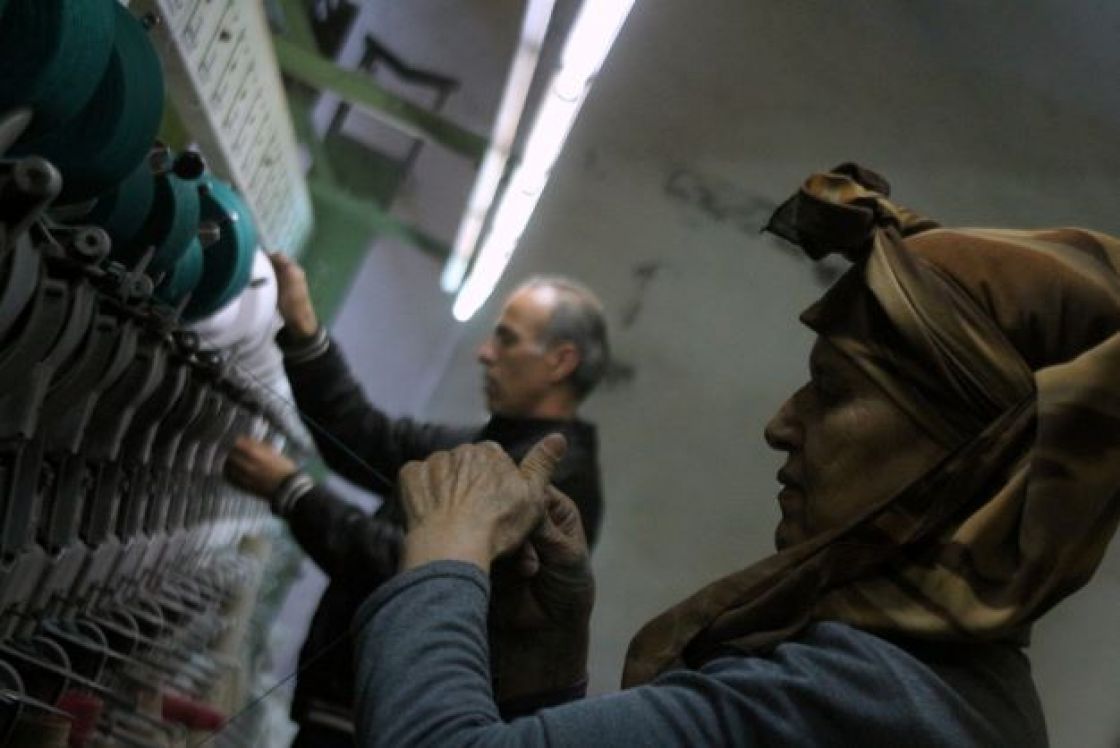- Editorials
- Posted
Kassioun Editorial 1068: Deterioration of Syrian Working Class Conditions
International Labor Day comes at a time when the Syrian working class is at its poorest and most oppressed conditions. While this holiday, in its Syrian dimension, does not bring any joy, especially for the Syrian worker, it more intensively carries the struggle and revolutionary values needed for the radical change of the catastrophic reality this worker is living, and such is the tragic reality of his country.
The working class in Syria is the broadest number wise, and with its varying diversity - including the agricultural workers and day workers and others - makes up the greatest majority of Syrians. Today, this class makes no more than 13% of the total wealth they all produce, while the profiteers make 87% of that wealth.
As the crisis continues and deepens, the brutal liberal policies, which are consistent with the recommendations of the IMF and the World Bank, including lifting subsidies and today’s talk about the so-called “monetary support”, which represents the last step before completely wiping out subsidies. They also include the newly-adopted another one of the IMF’s concepts: “tying wages with production”, which our officials have imported as is to apply to us, ignoring that it represents the essence of “intellectual output” of international bloodsuckers. This results as well in the systematic destruction of production for the benefit of nonproductive activities, which opens the door for the growth of the black market and criminal economy, and allowing the big monopolizers - with the help of the consecutive governments - to tighten their grip around the necks of Syrians in the majority of basic goods.
All of this is happening in parallel with the horrific decline in the level of political freedoms, which restricts real political, union, and popular activity that is required to confront these policies that go against the interests of the people and the country.
Furthermore, there are the Western sanctions which go hand-in-hand with the big corruption, and feeds and strengthens it.
All of this has led the Syrian working class to an unprecedented deterioration, some of the indicators of which are:
First: the minimum wage in Syria is around 93,000 SYP, while the minimum cost of living for a family of five is around 1.8 million SYP. In other words, if there are two wage earners in each family, the wages earned would not exceed 10% of the minimum cost of living. Meaning, the working class in Syria no longer earns enough for simple reproduction for itself. That is, the Syrian “human capital” - through the liberal policies - is getting systematically and quickly destroyed.
Second: there no clear studies about the average age of Syrians these days, but undoubtedly, this average has dropped, not only because of military and war operations, but also during the last few years especially, due to the catastrophic economic and health conditions.
Third: with the continued push of Syrians outside the country, the Syrian working class lost a large amount of quality experiences it previously had, and therefore it’s internal structure was disrupted and the overall average of its experiences and skills dropped, thus its knowledge and capability levels in general.
Getting the working class to a situation where it cannot reproduce itself, means getting the entire country to inability to rejuvenate. This also means going deeper and deeper in the swamp of death and destruction. Since this is the situation, the way out was and still requires more consolidation of the working class struggles, while benefiting from the latest international conditions that are quickly moving against the interests of the international and domestic bloodsuckers, all the way to reaching a comprehensive and radical change that stops the death curve and gives a life push to the country and its people. This starts with a comprehensive political solution according to UNSC resolution 2254.


